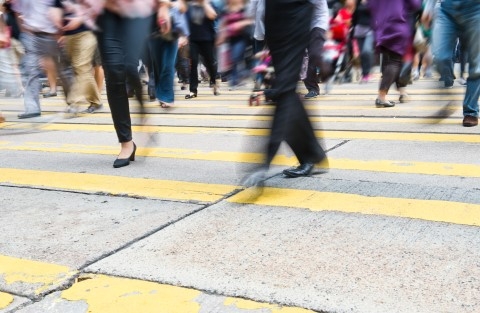
Could Occupy Central hurt the unemployment rate even more?
Short answer: Not really.
In an assessment of Occupy Central's initial impact, it has been observed that there will be little pressure on the unemployment rate as labor shortages still prevail.
According to a research note from DBS, further, unemployment outcomes differ significantly depending on how long Occupy Central lasts, and also how long mainland tourist restrictions remain in place.
In the SARs episode, the unemployment rate shot up to 8.8% by August 2003 from 7.0% in January 2003. However, the present economic situation is different.
DBS noted that it expects little impact on the headline unemployment rate for several reasons.
First, Occupy Central occurred as the unemployment rate hovers at a low 3.3%– essentially full employment. Hong Kong’s labor supply – growing at just 1% per annum – is serving the needs of both the local market and a large and fast growing China market, causing prolonged periods of labor shortages.
The existence of such labor shortages lends some buffer to a temporary decline in labor demand due to Occupy Central.
Here's more from DBS:
Second, the movement is expected to be temporary. In the short term, underemployment may rise but workers asked to stay home temporarily will be needed again when demonstrations end and tourists return.
Third, the scope of Occupy Central is limited mainly to a few districts. It is business as usual in unaffected areas, and some retail premises in those areas have attracted more people.
Fourth, there is a high degree of labor mobility within the retail sector. The skill-sets exhibited by sales staff and warehousing staff are often transferrable across retail premises and locations.
Because of this buffer, a short term shock to limited areas of the retail market will not lead to an immediate rise in the unemployment rate.






















 Advertise
Advertise







